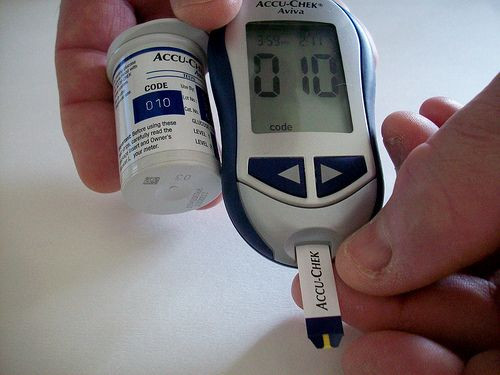Type 2 Diabetes Is No Match For Rare Gene Mutation That Fights The Disease; Drug Targets At Least 10 Years Away

A rare gene mutation that cuts a person’s risk for type 2 diabetes by up to two-thirds could offer new prospects for drug therapies that can mimic the mutation’s effects, a new study finds.
Though the drug therapies are still a decade or two away, the notion that such a gene mutation exists — one that can so substantially reduce a person’s risk for diabetes, even if he or she is overweight — still astounds researchers. As one of the leading causes of death in the U.S. and around the world, with some 25 million sufferers stateside and 347 million internationally, type 2 diabetes still carries no cure, and treatment of the disease can be costly and inconvenient.
The mutation occurs on a gene known as SLC30A8, and in previous studies on mice actually showed the opposite effect: When scientists destroyed the gene, diabetes emerged. In both humans and mice, the mutation serves to erase a gene in pancreas cells. This is where the critical hormone insulin is made, and when the gene is present it tends to stifle the hormone’s production. Getting rid of the gene, in other words, keeps a person’s insulin levels higher and glucose levels lower, pretty much throughout their lives.
The critical breakthrough may indeed come later, as the new biological understanding could translate into practical pharmacological approaches, said David Altshuler, deputy director and chief academic officer at the Broad Institute and a professor at Harvard Medical School, in a statement. “Human genetics is not just a tool for understanding biology,” he said. “It can also powerfully inform drug discovery by addressing one of the most challenging and important questions — knowing which targets to go after.”
Researchers from several universities combed through the genetics of 150,000 subjects of varying ages, weights, and lifestyles — including drinking and smoking — and ultimately found that even the obese subjects that smoked and drank showed little to no risk for diabetes if they also carried the gene mutation. Meanwhile, those without the mutation were substantially more likely to carry the disease even if they led healthier lifestyles.
This is the first time in diabetes research that science has observed a mutated gene to be beneficial, explained Louis Philipson, director of the Kovler Diabetes Center at the University of Chicago, to The New York Times. Philipson called the findings’ potential “very powerful.”
Funding for the study came via Pfizer, the major drug manufacturer, and Amgen, which owns a company whose data helped the study along. But in prior years the researchers had trouble securing peer review, as the data pool seemed too small to prove the controversial findings. So they cast a wider net of participants and mapped the genetics of 13,000 more people. The second time around, their conclusions were validated.
Though the specific mechanism behind the mutation’s insulin-boosting and glucose-reducing effects still are unclear to researchers, Pfizer’s chief scientific officer of cardiovascular, metabolic, and endocrine research, Tim Rolph, credited the study as a huge step forward in diabetes research.
"Through this partnership, we have been able to identify genetic mutations related to loss of gene function, which are protective against type 2 diabetes," he said. "Such genetic associations provide important new insights into the pathogenesis of diabetes, potentially leading to the discovery of drug targets, which may result in a novel medicine."
Source: Flannick J, Thorleifsson G, Beer N, et al. Loss-of-function mutations in SLC30A8 protect against type 2 diabetes. Nature Genetics. 2014.



























